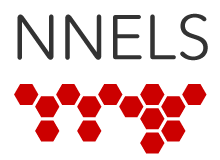Along with our colleagues at CELA (Centre for Equitable Library Access), we are actively engaging with the federal Minister of Employment, Workforce Development and Disability Inclusion, the Hon. Carla Qualtrough, the Deputy Prime Minister and Minister of Finance, the Hon. Chrystia Freeland, and key opposition Members of Parliament in an effort to have funding restored.
With only a few weeks left to influence the federal budget process, we need your help.
What you can do:
- Write your MP, Ministers Qualtrough and Freeland, and key opposition Members of Parliament. Find your MP by searching via postal code here.
- Share information on your social media. We’ve included graphics you can use, or simply follow our Facebook and Twitter accounts and share our posts. Consider tagging Ministers Qualtrough and Freeland, Prime Minister Trudeau. Please use this hashtag so we can track the campaign and amplify your efforts. #RestoreAccessibleBookFunding
- Share this information with your family, friends, colleagues, and your disability support organizations and ask them to join in this effort. Consider making a phone call to your MP. It is urgent that the government and the opposition know how important accessible reading materials are to their constituents.
- The federal government is currently drafting the budget which will be released by (date). Letter should be sent to MPs and government officials by (deadline). It is important that letters sent by mid-March.
The federal government is currently drafting the budget which will be released by (date). Letter should be sent to MPs and government officials by (deadline). It is important that letters be sent by mid-March.
You can download sample letters here.
What to say to your MP
Your representative needs to hear how important accessible books and NNELS services are to you. Share how you, your loved ones, or patrons use accessible reading materials. How have accessible materials impacted your life, studies, work, or health? Has NNELS’ accessible Covid-19 information kept you in the loop with important pandemic data? Were you able to access reading materials for your children with print or learning disabilities for educating and entertaining at home? Are you a senior who is isolated, but able to find a sense of connection and engagement through reading? Do you just love reading and are happy to be able to access accessible versions of books simultaneously with traditional publications.
If you’re stuck, try starting your sentences with these suggestions:
- Being able to read books in accessible format allows me…
- I love books and without NNELS services…
- Accessible reading materials are important to me because…
- Access to accessible reading material through NNELS means…
We’ve also included some facts and points to help you make your case.
Facts and Figures
- 1 in 10 people have print disabilities. The federal government is turning its back on its commitment to equity, accessibility and inclusion by not funding accessible reading materials the at least 3 million Canadian residents who need our services.
- Print disabilities include low vision or blindness, learning disabilities like dyslexia or physical disabilities like Parkinsons, Cerebral Palsy and others which prevent them from using traditional print.
- People with disabilities are already underserved, facing barriers to accessing education, employment and services, and they are disproportionately affected by COVID-19.
- Each year in Canada, people with print disabilities read more than 1 million accessible titles
- Access to reading materials is crucial to economic and academic success, and social inclusion which supports mental health and wellness.
- Studies have shown that choice in reading materials is essential for engaging students with print disabilities in academic and recreational reading – both crucial to future success. A reduction in funding for accessible books means a reduction in the choice of reading materials.
- Because NNELS supports libraries across the country, we are able to provide a service that is comprehensive, efficient, cost effective and offers more value than libraries could achieve individually.
- Currently, only 7-10% of the world’s published content is available in accessible format.
NNELS is constantly embarking on new and exciting projects that advance accessible publishing, put the voices of people with disabilities at the centre, and build on and enhance a digital platform of books that can be read and enjoyed by people with print disabilities. We are passionate about reading, equity, and access for all, and look forward to continuing to make the reading world as accessible as possible. But we cannot do this unless funding is restored. Help us continue our work for the 3 million Canadians who need our services, for the libraries that rely on our services, and for the future of accessible publishing in Canada.
